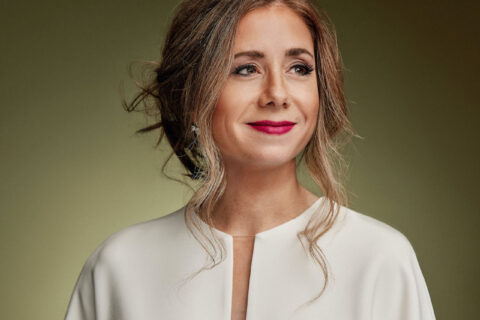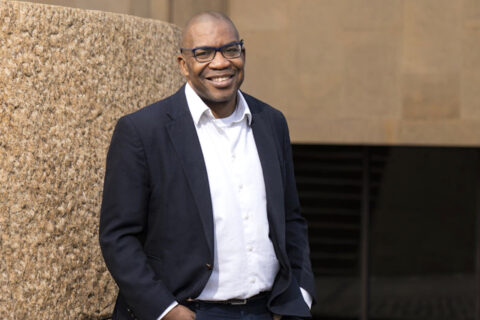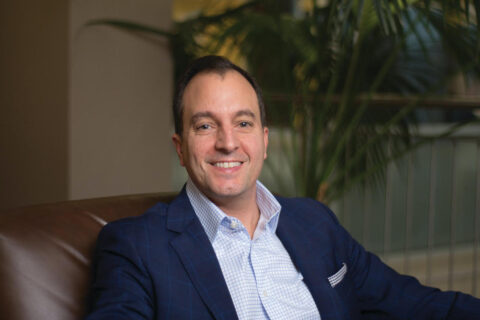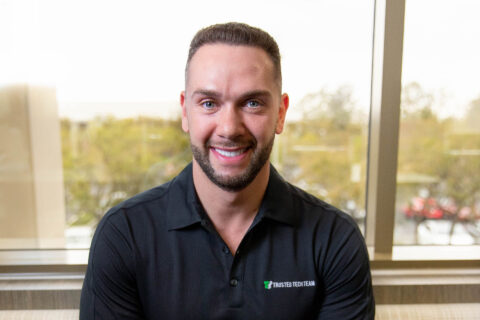What does a sustainable beauty industry look like? These five women are finding the answer. Learn how their clean beauty startups are using eco-friendly practices to change the face of the industry.
Sustainability in the Beauty Industry
There are many reasons for change in the beauty industry, and the lack of sustainable, clean products is one of them. Large beauty manufacturers use harsh fragrances and chemicals from unethical sources and use an overabundance of single-use plastics. Today, entrepreneurs are making sustainable wellness fit the beauty scene.
These practices are unfair to farmers, chemists, and customers and the byproducts sit in landfills and release carbon emissions into the atmosphere. These emissions contribute to climate change, which is already impacting the planet. Extreme weather conditions, lack of safe food and water, animal endangerment, and air pollution are just some of its side effects.
The beauty industry contributes to one-third of landfill waste. Aside from its contribution to the depleting ozone layer, the plastics can end up in oceans, harming its creatures.
Meet five women who are making strides to improve the industry and the world.
Gigi Goldman
Gigi Goldman was a stay-at-home mom who admittedly didn’t have much of a beauty routine. However, she soon discovered the many benefits of coconut oil for its all-over hydration and skin-soothing properties.
She and her husband launched Kopari Beauty online in 2015 after sourcing the purest coconut oil possible. Aside from its healing benefits, coconut oil is also a sustainable and clean beauty ingredient.
The company prides itself in creating products that promote beauty with safe ingredients. Goldman uses her prized 100% coconut oil in creating shower gels, body butters, and other moisturizers. She also maintains a promise of creating a safe working environment for the coconut farmers they employ and provides them with living wages.
Kopari works with TerraCycle, allowing their customers to recycle all packaging.
Kim van Haaster
Kim van Haaster began Bloomeffects in New York utilizing royal tulips. She married a Dutch tulip founder and learned that tulips continue to grow after you cut them. Regenerating two or more inches, it became a clean and sustainable solution for various beauty products.
She initially received two Dutch government grants to research and discover the tulip’s benefits for the beauty and skincare industry.
Tulip, prickly pear and white horehand are eco-friendly plant extracts used in moisturizers, serums, and more. Safety is a top priority for van Haaster and Bloomeffects makes products that promote healthy skin without toxins.
Beginning in 2019, Bloomeffects soon opened more plots to expand their business, with more than $400,000 in revenue.
Tina Hedges
In 2020, LOLI founder Tina Hedges said the inspiration for Living Organic Loving Ingredients (LOLI) began when she was a teenager growing up in Jamaica. Her Cuban mother taught her many natural, homemade beauty remedies, such as using honey for a face mask or chamomile with steam to open and cleanse pores.
Her love of the beauty industry allowed her to work with chemists to create various products based on superfood ingredients. After a health crisis, Hedges returned to her roots to discover a holistic approach to health and beauty. She realized that most product formulas were made from chemical, synthetic, and water. Consumers also had a growing concern about environmentally friendly and cruelty-free options. She wanted to create alternatives made from natural ingredients and zero-waste packaging.
She replaced harmful chemicals with food-based ingredients and used plastic-free, recyclable packing. The company uses rose water and other zero-waste ingredients in moisturizers, makeup removers, and serums. All plant ingredients are organic and wild-harvested.
The company has seen significant growth, with over $8 million in revenue.
Georgina Ristich
Georgina Ritsch began Planet Kind with partner Oliver in 2021 after noticing a lack of environmentally friendly health products. Based in the UK, the business is quickly spreading around Europe, including Ritsch’s native Serbia. Beginning with a music festival there, they promote healthy habits, hold workshops, and provide sports performance coaching.
As for products, Planet Kind is dedicated to producing low and zero-waste products, including reusable stainless-steel straws, bamboo toothbrushes, and upcycled fashion. The company advocates for the end of wasteful consumerism. Ristich emphasizes the power of one small action to better the world and encourages potential customers to take small steps towards an eco-friendly lifestyle.
“Sustainable and ethical living doesn’t happen overnight. It takes a lot of trial and error, learning, ‘unlearning’ and figuring out what works best for you,” she says on the website profile.
Reusable cotton rounds and natural floss are some of the alternative health products Planet Kind offers. They also offer organic cotton shopping totes for purchasing local makeup and other products.
Laney Crowell
Laney Crowell sat behind a computer screen doing social media for Estee Lauder. After years of working in the industry, Crowell pushed for wellness to be a priority. She launched The Moment, a blog dedicated to clean beauty and whole-body wellness. Crowell realized a hole in the market for quality, clean makeup. That’s when she decided to start Saie.
Launched in 2019, Saie has strict health and sustainability standards. The brand steers clear of more than 2,000 ingredients and prides itself on safe, non-toxic products that look and feel great.
The startup now thrives, earning $25 million annually. It continues to partner with climate nonprofits and works to find the best ingredients to nourish the body and benefit the planet. Located in New York City, Saie employs more than 80 people. The company sells reasonably-priced makeup products for a full face, application tools, and other skincare products.
You can find Saie products on Sephora or order them from the website. When you finish using them, you can return the empty containers for free, where Past Collective will ensure they’re properly recycled.
Supporting Sustainable Beauty
Makeup and skincare are ways to maintain health, engage in self-care, and have fun. However, it’s vital to consider these industries’ impacts on the planet. Supporting these and other sustainable beauty startups is an excellent way to enjoy the types of products you love in the cleanest, most sustainable way possible.
© YFS Magazine. All Rights Reserved. Copying prohibited. All material is protected by U.S. and international copyright laws. Unauthorized reproduction or distribution of this material is prohibited. Sharing of this material under Attribution-NonCommercial-NoDerivatives 4.0 International terms, listed here, is permitted.













